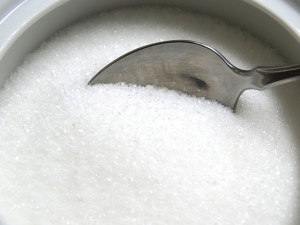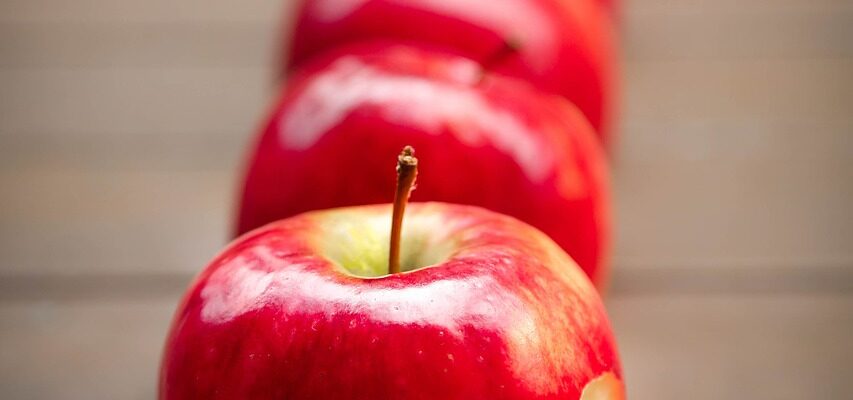Essential: You Should Be Eating More Carbs
As we have been discussing the past few weeks, knowing what nutrients are essential — meaning they must be consumed from food, our body cannot manufacture them — teaches us a lot about what we should be eating.
This week we take a look at carbohydrates.
It’s a list of three this week:
- Simple Sugars (found in fruit)
- Complex Carbohydrates
- Fiber
Well, really, ALL carbohydrates are essential nutrients. Remember; being “essential” means our body cannot manufacture them. We are not photosynthetic plants, so we cannot make our own carbohydrates from scratch: hence, we need to get them from food.
But wait, why do I hear so much about carbs being the enemy, the cause of the obesity crisis, the diabetes epidemic – even the heart disease problem? Surely they must all be bad!
Notice that the list of essential carbohydrates left out one major category: refined carbohydrates.
But more on that in a second, let’s first talk about why carbohydrates are necessary to eat.
Carbs are the main energy source in the body. They are preferred over the other two types of fuel; fat and protein. What this means is when you eat a meal that contains carbs, protein, and fat (which essentially is all meals you eat) your body will preferentially choose to burn the carbohydrates for energy first.
Let’s say you need 500 calories of energy to power you until the next time you eat. If your meal is exactly 500 calories, your body will burn all of it — the carbs, protein, and fat — for energy.
However, if your meal happens to be over 500 calories, your body will burn the carbs first, and any excess fat gets stored in your body. This is one reason why following a low-fat diet is helpful in keeping a low body weight.
There is even evidence to suggest that the human body is very inefficient in its conversion of excess carbohydrates into fat.¹
Some animals, like pigs and bees, for example, are really good at turning carbohydrates into fat — flesh for the pig and wax for the bee. It appears humans are not so good at this conversion of carbohydrate into fat. Instead, excess carbohydrate fuel gets burned.
I know this goes against everything you’ve heard about how “carbs make you fat.”
But if we break this down further, it actually makes sense. See, most people in America eat a high carb AND high fat diet. We drink soda, eat french fries and have cheeseburgers. The soda is pure refined carbohydrate, the fries are carbs and fats, and the burger is tons of fat.
In this scenario, the body preferentially burns the carbohydrate fuel for energy. The excess fat energy from the meal gets stored. So it isn’t the carbs that are making you fat, but the fact that you ate a lot of fat with the carbs.
Delving further, from a biochemical standpoint this also makes sense. Taking fat from food and storing it in the body is a very efficient process. Your body breaks a few simple bonds in the fat, takes the fatty acid chains, and deposits them in your fat cells.
You actually have to make an entirely new molecule to turn excess carbohydrates into fat. Your body would rather conserve its effort and just burn it for heat.
So, how many carbs do we actually need?
Well knowing that your body prefers to run on carbohydrates (a clean burning fuel, with water and CO² as the only byproducts), I’d say you need A LOT. As we saw in the previous two posts in this series, the body’s need for protein and fat is very low, so essentially most of your energy should come from carbs.
Wait, am I crazy to suggest we need to eat more carbs? Seriously, carbs are demonized in America! They make you fat!
Enter: refined carbohydrates.
 These are non-essential, and are easy to over-consume. Refined carbohydrates are fruit juice, white sugar, white rice, white bread, breakfast cereals, crackers, chips, the flour in cookies and cakes, white pasta, etc.
These are non-essential, and are easy to over-consume. Refined carbohydrates are fruit juice, white sugar, white rice, white bread, breakfast cereals, crackers, chips, the flour in cookies and cakes, white pasta, etc.
These carbohydrates came from whole plants — they started out really healthy! Then humans stripped away nearly all the fiber, vitamins, minerals, and antioxidants (what made them healthy) and left only the calories and a few token nutrients.
The soda and french fries are still not healthy, despite their carbohydrate content.
Fiber is really the key in all of this. With the fiber, carbohydrates are awesome. Without it, they cause blood sugar spikes, they don’t fill you up, and you overeat. Refined carbs have no fiber. Whole plants have tons of fiber. Eat more whole plants — and eat more carbs!
The YouTube Channel on Thursday will have MORE!
¹Hellerstein MK. De novo lipogenesis in humans: metabolic and regulatory aspects. Eur J Clin Nutr. 1999 Apr;53 Suppl 1:S53-65.

